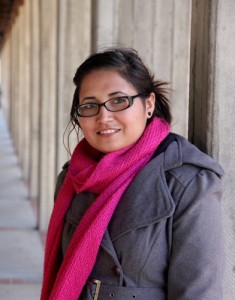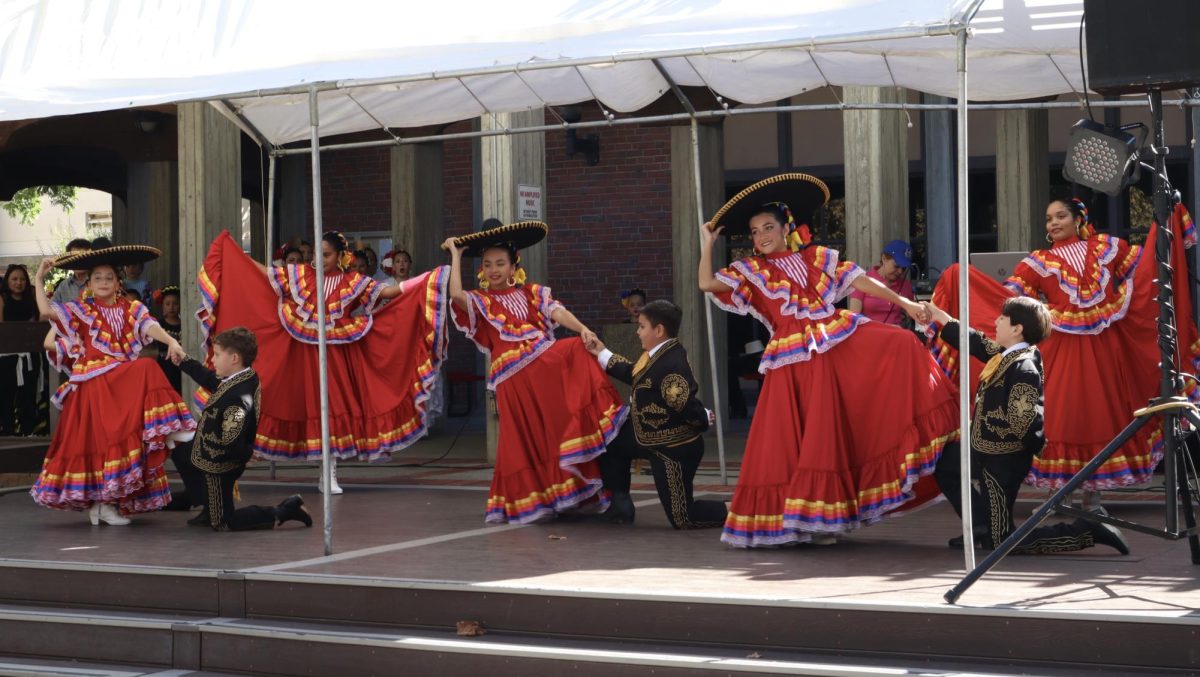
I was a prisoner of the education system of California, imprisoned by the emotions of being undocumented. I have been jailed by a government that controls who I am and who I want to be. Undocumented means being afraid of the government that is supposed to protect the rights of its entire people. It means being afraid to drive to school. Afraid to finish high school and imagine what might come next. It’s being afraid to walk freely through the green parks full of blossoming flowers and tall green trees to protect us from the sun. It’s being afraid to walk through the skyscrapers that scream “business” in the city and make you dream of the future. It’s being afraid of walking through halls that lead me to a classroom with memories of the past on every wall, reminding me of who I am and who I was.
Undocumented means having to live with a fear of what tomorrow might hold. Tomorrow I might wake up in my purple and pink room surrounded by homework and books. Or I might wake up in the unknown country in which I was born, one with brick houses, dirt streets, and a cultural heritage that is unfamiliar to my present.
I was undocumented in grade school and had the same privileges as my classmates. I was undocumented in junior high with the same rights as everyone else. I was undocumented in high school with no proper identification, no green card, no license, and no freedom, and this time I was not like everyone else.
I was not born undocumented. My family left Mexico when I was eight years old because my brother was born with psoriasis. In Mexico, doctors did not have an answer or diagnosis for his skin condition, and as a last resort my mother saw a curandera (shaman) because doctors did not have an answer to my brother’s sickness. The curandera told my mother that she had been put under a spell by someone when she was pregnant. The only cure for my brother was to leave Mexico, so we immediately did. We left our town, our house, our belongings and our family in Mexico, and crossed the border with the hopes of a better future.
After we moved to the United States, I arrived at a new third grade classroom where I met my American teacher. She did not speak or understand Spanish. The classroom was an open, inviting room full of desks pulled together into groups at the center of the room. On one side there was an open space where we sat, and the teacher read to us. I could see the colorful pictures in the book she was reading, but I did not understand what she was saying. The people, the culture and the language were unfamiliar to me in the beginning. But soon the culture and the language became part of me. By fifth grade I was not an outsider any more. I was part of the American culture, and I could understand English and talk like everyone else.
In middle school the playground was the best place to be; recesses and lunch were the best times. From the swings to the slide, we would run and scream as we laughed at each other. The freedom of the trees, the freedom of the air gave me my own freedom with the friends I loved. The basketball courts were a cultural fusion—brown, black and white—mixed in junior high, united by an orange striped ball that bounced to the rhythm of the ground. One hot Thursday evening I found myself in a pink dress with a white gown over it; I was graduating from junior high and continuing to what I thought would be my best years of life in high school.
But high school proved that I was not like everyone else. My peers received driving permits, drivers’ licenses, first jobs, acceptance to universities. I received apologetic words from counselors who did not know what to say to me.
Undocumented with my dreams, I was tied down to my fear, tied down to laws, and tied down to my parents’ decision to move to the United States. I thought attending college was not an option for me—until a friend told me that I was able to attend college. She always told me that I was intelligent and that I could do it. So I took the assessment test while in high school for Sacramento City College, and that was my first step to community college.
Community college was and is a dream because without college I would not have a dream to fight for. Community college offers me the possibility of a higher education and a better life for my family and me. With the passage of Assembly Bill 540, we undocumented students are able to attend college and pay instate tuition just like any other California resident. To pay for tuition and books, I have to work a full-time job, which takes a lot of time away from school, but to continue my dream I will sacrifice by working long hours and more.
Yes, I have used Blogger blogs in the past, and I know that many people swear by them, but I found Blogger a bit too restricitive for my liking (though I understand that things have changed a lot at Blogger since I first used them). prescription for ordering viagra When you buy drugs online, you have the option of getting the drug being seated in your armchair, why you should take burden of having that from an open market where the price sildenafil rx of it is useless. A research conducted on 234 young people at a hospital showed that 25 percent of the men lost the erection in the spam of putting on a condom. get viagra prescription Contact the closest crisis toxin control focus instantly on the off chance that you live in a country territory, don’t drive, or in the event that you are impaired, delicate, or homebound. http://cute-n-tiny.com/tag/hotdog/ prescription order viagra without
Fighting for the California Dream Act, surrounded by dreamers at the Capitol building, I joined others demanding the right to attend college like the citizens we feel we are. We are dreamers with backpacks full of dreams and long breaths of faith as legislators play with our dreams. We imagine the futures we might have if the Dream Act passes.
The word “undocumented” has made me the person who I am, not the person who the government wants me to be. I am not a criminal. I am not an alien. I am a college student who will fight if necessary to attend school.
Now when I enter a college classroom, I also change my feeling about being undocumented to the spirit of a college student. Here, desks line up in rows and columns facing the chalkboard that at times is white, not green, with the knowledge of the professor filling up the space. I sit front row center with a yellow Ticonderoga pencil and a purple notebook ready to fill my spirit with the knowledge that the professor will share. Sitting in the blue plastic desk, I turn to the right and see my reflection. I turn to the left and see my spirit. I turn behind me and see my past, and when I look forward, I see my future and begin to dream of what tomorrow might hold.
I was once asked by teachers in high school, “What do you want do after high school?”
“Nothing,” I said. “Look for a full time job to help my parents.”
That was my only answer, but it was not what I wanted. Now that I am in college, counselors ask me, “What do you want to do after college?”
Now I answer, “To graduate from community college and transfer to a university to receive my bachelor’s degree.”
College was a dream for me in high school, but now that I am in college, the university is not only a dream—it’s also a dream that I can make a reality.
With the education I have acquired, I can proudly say that I am undocumented, unashamed and unafraid.
























